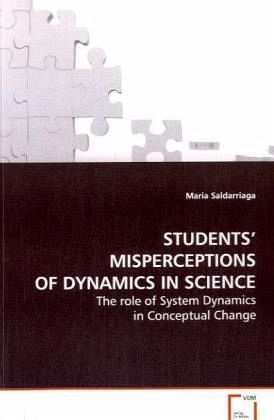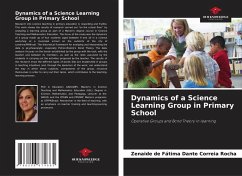
STUDENTS' MISPERCEPTIONS OF DYNAMICS IN SCIENCE
The role of System Dynamics in Conceptual Change
Versandkostenfrei!
Versandfertig in 6-10 Tagen
32,99 €
inkl. MwSt.

PAYBACK Punkte
16 °P sammeln!
During the last decades most of the research inscience education has focused on the diagnosis anddocumentation of students' difficulties inunderstanding sciences. These investigations haveshown that students have frequent misperceptions ofbasic dynamics which in addition to appear acrosssituations and domains, are strongly resistant totraditional education. We propose an analyticalframework to interpret the cognitive effects ofsystem dynamics interventions in students' scienceknowledge. Based on a cognitive theory of sciencelearning denominated coordination, we suggest'seeing in levels' -thoug...
During the last decades most of the research inscience education has focused on the diagnosis anddocumentation of students' difficulties inunderstanding sciences. These investigations haveshown that students have frequent misperceptions ofbasic dynamics which in addition to appear acrosssituations and domains, are strongly resistant totraditional education. We propose an analyticalframework to interpret the cognitive effects ofsystem dynamics interventions in students' scienceknowledge. Based on a cognitive theory of sciencelearning denominated coordination, we suggest'seeing in levels' -thought as the ability torecognize the stock and flow structure of a system-as an appropriate mechanism for addressing studentsmisconceptions of dynamics in school sciences. Weargue that 'seeing in levels' may help students inreasoning about scientific concepts, given that itprovides a strategy for both thinking and organizingperception.












